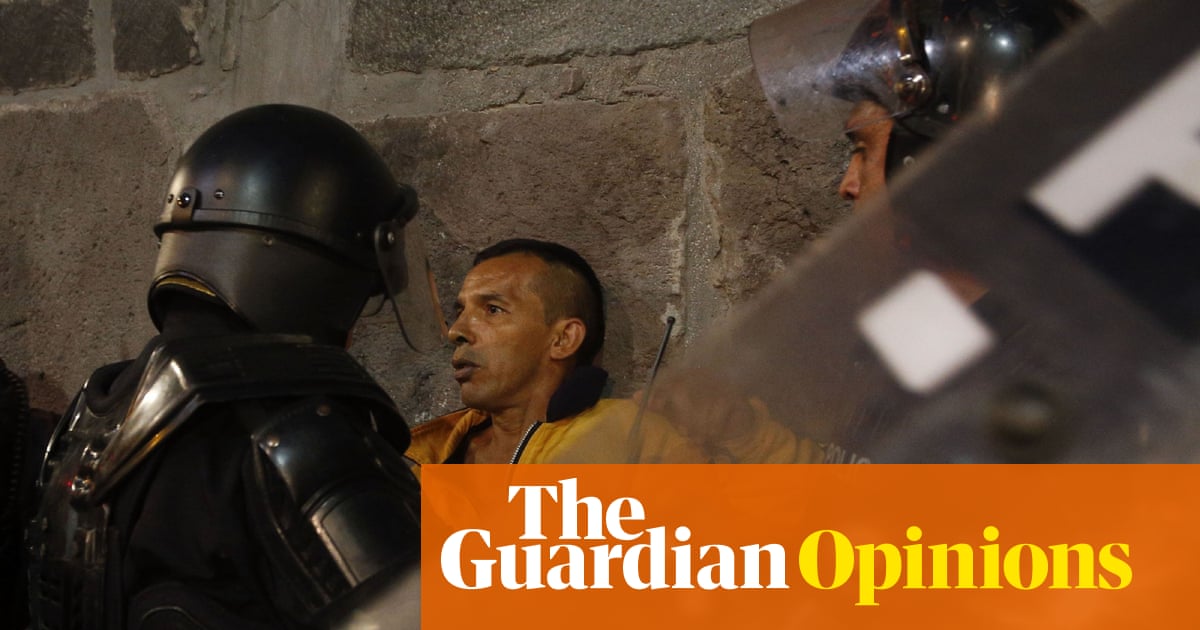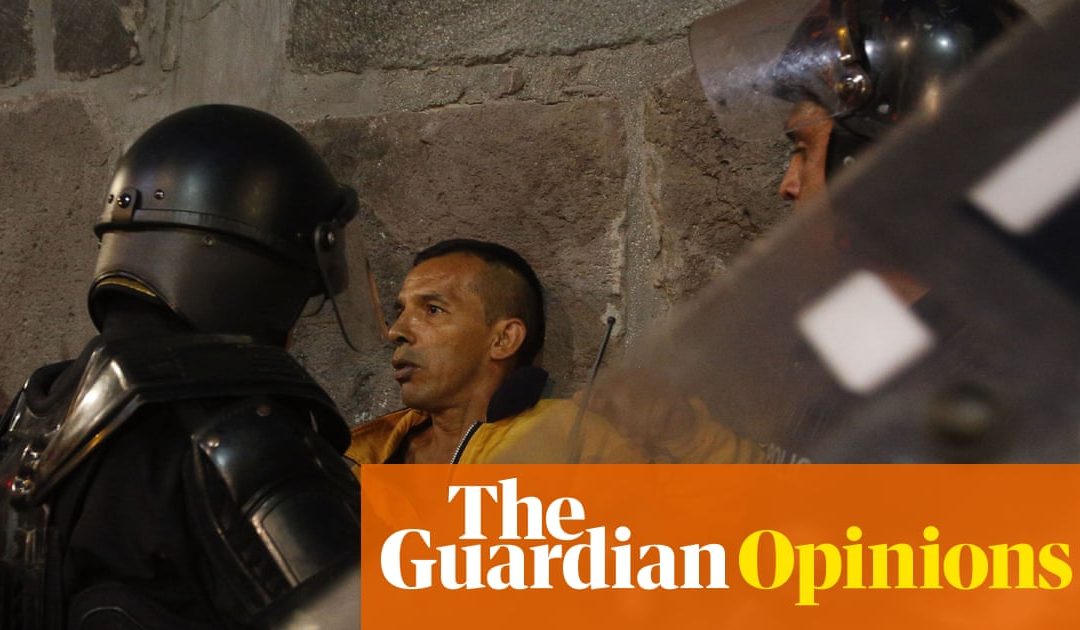The funds loan contract with Ecuador will aggravate joblessness and hardship

W hen individuals consider the damage that rich nations– usually led by the United States and its allies– trigger to individuals in the remainder of the world, they most likely consider warfare. Numerous countless Iraqis passed away from the 2003 intrusion, and after that much more as the area ended up being swollen.
But abundant nations likewise have substantial power over the lives of billions of individuals through their control over organizations of worldwide governance. Among these is the International Monetary Fund. It has 189 member nations, however the United States and its rich-country allies have a strong bulk of the votes. The head of the IMF is by custom-made a European, and the United States has enough votes to ban numerous significant choices by itself– although the abundant nations practically never ever vote versus each other.
To see what the issue appears like, think about a current IMF loan. In March, Ecuador signed an contract to obtain $4.2 bn from the IMF over 3 years, supplied that the federal government would abide by a particular financial program defined in the plan. In the words of Christine Laharde– then the IMF chief– this was “an extensive reform program focused on updating the economy and leading the way for strong, continual, and fair development”.
But is it? The program requires a huge tightening up of the nation’s nationwide spending plan– about 6% of GDP over the next 3 years. (For contrast, envision tightening up the United States federal budget plan by $1.4 trillion, through some mix of cutting costs and raising taxes). In Ecuador , this will consist of shooting 10s of countless public sector workers, raising taxes that fall disproportionately on bad individuals, and making cuts to public financial investment.
The total effect of this big financial tightening up will be to press the economy into economic downturn. The IMF’s forecasts are for a reasonably moderate economic downturn till next year, however it will likely be much deeper and longer– as typically occurs with IMF programs. Joblessness will increase– even the IMF program forecasts acknowledge that– therefore will hardship.
One factor that it will likely end up much even worse than the IMF tasks is that the program relies on presumptions that are not credible. The IMF jobs that there will be a net foreign personal sector inflow into the economy of $5.4 bn (about 5% of GDP) for 2019– 2022. If we look at the last 3 years, there was an outflow of $16.5 bn (17% of GDP). What would make foreign financiers all of a sudden a lot more fired up about bringing their cash to Ecuador? Not the economic crisis that even the IMF is predicting.
There are other implausible presumptions and even some that arise from accounting mistakes, and unfortunately they all enter the very same instructions. It appears that the program’s “expansionary austerity”– something that nearly never ever occurs– is not likely to make Ecuador into a world-famous exception, where the economy grows as aggregate need is slashed.
The program likewise looks for to improve the economy in manner ins which, to numerous Ecuadorians, would seem political. The reserve bank will be made more self-governing; public possessions will be privatized; and labor law will be altered in manner ins which provide companies more unchecked power over employees. A few of these modifications– for instance, the separation of the reserve bank from other federal government decision-making– will make financial healing much more tough.
All this is occurring under a federal government– chosen in 2017 on a platform of connection– that looks for to reverse a previous years of political reforms. These reforms were, by procedures of social and financial indications, effective . Hardship was minimized by 38% and severe hardship by 47%; public financial investment– consisting of medical facilities, schools, roadways, and electrical energy– more than functioned as a percent of the economy. The previous federal government was a leftwing federal government that was more independent of the United States (by, for example, closing down the United States military base there).
One can envision what this appears like, as the Trump administration now gets huge power in Ecuador not just through the $4.2 bn IMF loan, however likewise $6bn from associated Washington-based multilateral organizations such as the World Bank and Inter-American Development Bank. (This amounts to about 10% of Ecuador’s yearly GDP– comparable to more than $2.1 tn in the United States.)
Actually, we do not need to envision much, given that the brand-new president, Lenn Moreno, has lined up himself with Trump’s financial and foreign policy in the area. At the exact same time, his federal government is maltreating his governmental predecessor, Rafael Correa, with incorrect charges submitted in 2015 that even Interpol will not bestow a worldwide warrant. Other opposition leaders have actually left the nation to prevent prohibited pre-trial detention– when it comes to previous foreign minister Ricardo Patio, for making a speech that the federal government did not like.
Since Washington manages IMF decision-making for this hemisphere, the Trump administration and the fund are linked in the political repression along with the more comprehensive effort to reconvert Ecuador into the sort of economy and politics that Trump and Pompeo want to see, however the majority of Ecuadorians plainly did not choose.
All this supplies a lot more reasons there requires to be major reform at the IMF, beginning with making it more of a multilateral organization, as it pretends to be. In the previous 20 years, the United States Congress– which needs to authorize financing boosts for the IMF– has on uncommon events stepped in to get rid of some abuses. In the early 2000s, for instance, countless bad kids in Africa got to main education and healthcare since the United States Congress made it difficult for the IMF and World Bank to need their federal governments to charge user charges for these fundamental requirements– as these organizations had actually been providing for years.
In the coming weeks, the IMF will probably pick a brand-new, wealthy white European to head the organization. Progressive members of Congress, who appreciate what United States diplomacy does to the remainder of the world, ought to weigh in with some needs for reform.
-
Mark Weisbrot is the co-director of the Center for Economic and Policy Research in Washington and the president of Just Foreign Policy . He is likewise the author of Failed: What the ‘Experts’ Got Wrong About the Global Economy
Read more: https://www.theguardian.com/commentisfree/2019/aug/27/imf-economics-inequality-trump-ecuador


Recent Comments